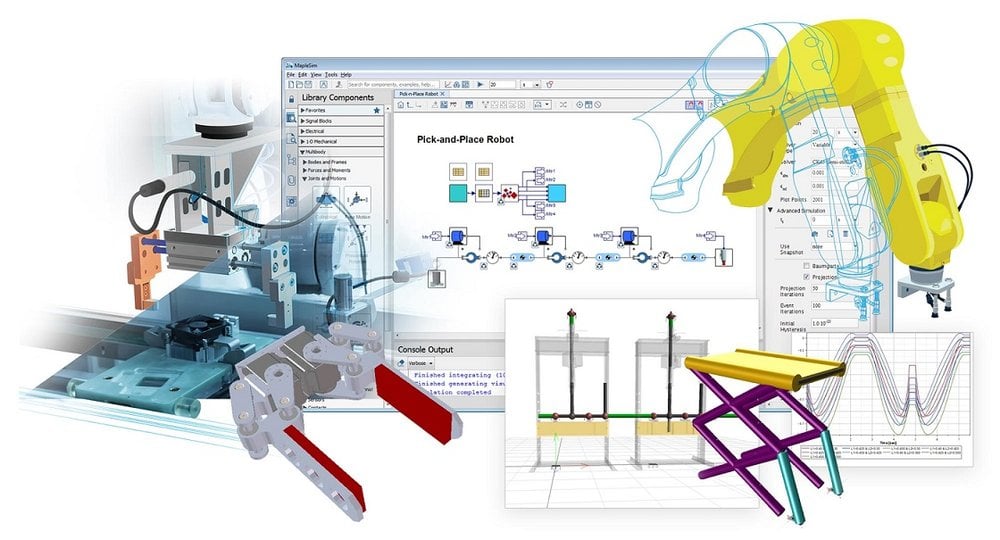www.magazine-industry-usa.com
31
'19
Written on Modified on
MapleSim 2019 Offers Improved Performance, Increased Modeling Scope
MapleSim 2019 family of products offers more tools for creating digital twins and other system-level modeling projects.

Simulation is faster for all customers in MapleSim 2019 due to more efficient handling of constraints when preparing the model, resulting in more compact, faster simulation code without any loss of fidelity. These results mean that MapleSim’s industry-leading speeds have gotten even better, saving time and enabling more real-time applications. In addition, models developed in MapleSim and then exported for use in other tools also run faster in the target applications.
New built-in and add-on components and expanded support for external libraries means that engineers can create more models, faster, in MapleSim 2019. The new release expands the scope of models that can be created using pre-existing components, with additions to hydraulics, electrical, multibody, and more.
As well, the MapleSim Engine Dynamics Library from Modelon is a new add-on library that provides specialized tools for modeling, simulating, and analyzing the performance of combustion engines. This component library is especially useful for representing transient engine responses, and can be used for analyzing engine performance, performing emission studies, controls development, hardware-in-the-loop verification of vehicle electronic control units, and more.
Toolchain connectivity is essential to many MapleSim customers, and MapleSim 2019 offers important advances in toolchain integration. Improvements include additional options for FMI connectivity, including support for variable-step solvers, as well as fixed-step, for running imported models in MapleSim and exporting models to other tools.
In addition, the new B&R MapleSim Connector add-on gives automation projects a powerful, model-based ability to test and visualize control strategies from within B&R Automation Studio, and to export simulation data for motor, servo, and gearbox sizing within SERVOsoft®.
“System level modeling has proven to be an invaluable tool for companies embarking on challenging engineering design projects, especially in the areas of automation and the creation of digital twins. Models can be used to both verify a design, as well as act as a virtual test bench for the machine’s control software - all before prototypes are built,” said Chad Schmitke, Senior Director, Product Development, Maplesoft.
“Whether an organization wishes to develop their own models or work in partnership with the Maplesoft Engineering Solutions team, the improvements in performance, scope, and connectivity in MapleSim 2019 offer benefits to everyone.”
www.maplesoft.com

